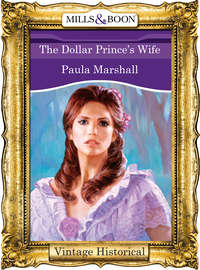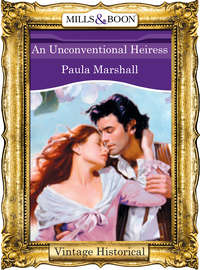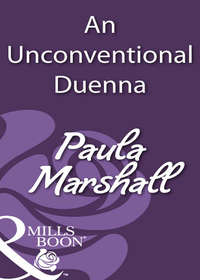
Полная версия
His One Woman
Sophie had been making her displeasure at missing Jack quite plain to all and sundry, and so Marietta explained to the Senator.
‘Hmm, Dilhorne. An odd name, and the second time that I have encountered it today. An Australian, you said, so they can scarcely be related.’
This was cryptic, even for the Senator, who frequently left out the connections in his chains of thought, expecting his daughter to pick them up, which she usually did—as today.
‘You mean that you have met another Dilhorne?’
‘Yes, an English MP and his aide. Alan Dilhorne and Charles Stanton. Dilhorne says that he does not represent the British Government, but you may be sure that he does. A handsome and devious fellow: one must listen carefully to what he says, or be misled.’
‘A little like mine,’ said Marietta.
‘His friend, though, is quite different,’ pursued her father. ‘A quiet dark man, a marine engineer, but a gentleman, patently.’
‘And that is another coincidence,’ said Marietta. ‘For my Dilhorne is a marine engineer.’
‘I do not like coincidences,’ said her father peevishly. ‘Coincidences make life difficult to control.’
‘But exciting,’ said Marietta, who had lately found this ingredient sadly lacking in her life. ‘Will they be at President Lincoln’s reception tonight?’
‘Of course,’ said her father, ‘and yours?’
‘Mine, too. Ezra Butler is taking him.’
‘That figures,’ said her father. ‘Butler has shipping interests in Australia. It will be stimulating to meet your man, and you must meet mine—although he is happily married, I understand.’
So her father was determined to matchmake. But she would not be pushed into anything, and, if she married, it must be someone whom she respected. Plain and twenty-seven as she was, love was too much to ask for.
Chapter Two
T he drive outside the White House was thronged with carriages and bobbing flambeaux there to light the way for Mr Lincoln’s guests. Marietta, who was used to such events to the point that they bored her, was handed down from the Hopes’ carriage, Sophie following her. Sophie was looking particularly charming in young girl’s white. A wealth of gauze rosebuds decorated her hair and her pink sash emphasised her tiny waist. She was carrying a bouquet of crimson and white hothouse carnations from which trailed filmy lace.
Marietta, for once not in a dark dress, was wearing lavender and was becoming increasingly conscious that it did even less for her than her usual colours, whatever her maid had said when she had helped her into it. She looked extinguished and knew it. The pale mauve gave her creamy complexion, one of her better points, a bilious cast.
Sophie, coming into the hall just before they had left, and still resentful of Marietta for having entertained Jack that afternoon, had said, sweetly unpleasant, ‘Are you well, Marietta? Your colour is poor tonight.’
Even the Senator—usually unaware of Sophie’s frequent brutality towards her cousin, whose lack of looks she thought was a good foil for her own delicate beauty—was alert to the insult, so pointed had it been.
‘I think that you look very well, my dear,’ he’d said, frowning at Sophie whom he disliked. His praise had done little to comfort Marietta. Her glass had told her only too clearly the truth about her appearance.
Before her father’s words that morning she would have shrugged off Sophie’s unkind remarks, but the armour which she had worn for the seven years since Avory Grant’s proposal had suddenly disappeared, and she was as vulnerable as she had been as a girl. Yesterday she would have ignored, or even been amused by, Sophie’s spite. Today, though, the words had stung—but she did not allow her distress to be visible.
Once inside the White House, Sophie was less interested in her short meeting with the President and Mrs Lincoln than in looking around her for Jack Dilhorne. Marietta thought that Mr Lincoln looked tired, which was not surprising in view of his country’s desperate situation: civil war was almost upon them.
Mary Todd Lincoln was, as usual, overdressed, and Marietta wondered how he had come to marry her: they seemed a most unlikely pair. This thought worried her, for she suddenly seemed to have marriage on the brain, and before tonight such a thing would not have occurred to her.
Senator Hope’s party walked on through the crowds of eagerly chattering people, most of whom Marietta knew through her father’s work—but she was suddenly aware that none of them knew her because she was Marietta Hope, but only because she was her father’s daughter. This was another new thought, and not a pleasant one.
A long mirror presented her with her ill-dressed self. I look forty, she thought, I really must take more interest in dress. No wonder Sophie laughs at me. I hope that she finds Jack soon; I cannot bear much more of her tantrums. I shall slap her, or scream, if she complains again.
Marietta betrayed none of this while bowing and smiling at those around her. The foreign diplomats who filled Washington were all present and she spoke pleasantly to them in her schoolgirl French. The elegant representative from Paris inwardly regretted that Miss Hope’s looks and general appearance were not so good as her brains.
A subdued scream from Sophie suddenly announced that she had seen Jack Dilhorne, and she began wildly semaphoring in his direction.
‘A little more decorum would be fitting, Sophie,’ said Marietta repressively, unable to resist, for once, the temptation to pay her cousin back for her earlier unkind remark, ‘or the world will think you a hoyden.’
‘Oh, pooh, we are not all old maids,’ said Sophie spitefully. ‘I particularly wish to speak to Jack, having missed him this afternoon.’ She waved her little bouquet again, narrowly missing a footman who was carrying a tray of drinks.
Jack had seen her and was threading his way through the packed room to her side. He looked even more handsome in his elegant evening dress, and even more in command of himself, if that were possible, than he had done that afternoon. He bowed to both Marietta and Sophie and was presented to the Senator.
Before the Senator could speak to him about his unusual name, twice encountered that day, Sophie took command of the situation.
‘Oh, Jack, what a bore that I was out this afternoon. I do hope that you were suitably distressed by my absence!’
What could the poor man say but ‘Oh, yes, indeed, Miss Sophie,’ thought Marietta satirically, as Jack promptly did so, with an apologetic smile at the Senator for their interrupted conversation. Unluckily he then added, ‘But Marietta looked after me most efficiently.’
‘Marietta…’ pouted Sophie prettily, ‘…but you call me Miss Sophie.’
‘Then that must be remedied immediately, Sophie,’ said Jack, quite the gallant.
Really, thought Marietta, he is too ready. Such charm is almost offensive. He even wasted it on me. For practice, one supposes. To have her own unkind thoughts immediately rebutted by Jack carrying tactlessly on by saying, ‘You see, Sophie, having the misfortune to miss you, I found another Hope cousin ready to give a poor stranger comfort and cheer.’
This was not what Sophie wanted at all. He should have been devastated at missing her, not congratulating himself on having his afternoon rescued for him by a plain Jane. She was provoked into being more publicly unkind to Marietta than was wise.
‘By discoursing to you of weighty matters, I hear. But then, Marietta is always so solemn. I hope that it did not sink the tea,’ she said, sarcasm plain in her voice.
Jack was no fool, and the false notes he could hear reverberated in his head. It was flattering that Sophie was jealous, but he did not care for such open spite. It presented a different picture of her from the pretty kitten Sophie usually showed to the world. A slight set-down might be in order.
‘On the contrary,’ he said cheerfully, directing his winning smile at Marietta, and noticing while he did so that the Senator disliked his niece, for Jack, like his father, was always keenly aware of such nuances of behaviour, ‘matters were most unusually light. So much so that even our muffins nearly flew away. Was not that so, Marietta?’
Marietta gratefully returned his smile with one of her own, and Jack wished that she would do it more often. It quite transformed her.
‘Indeed, Jack, although I must admit that your muffins were more affected than mine.’
Such banter from Marietta did not surprise Jack after taking tea with her, but it surprised the Senator and Sophie. Jack did not miss the surprise, either, nor that Sophie was annoyed by Marietta’s response to him. For the first time he thought that she was a little spoiled.
Sophie, suddenly aware that she was not presenting herself to Jack in a favourable light, first tried to remedy this by being as charming as possible, and then by allowing him to resume his interrupted conversation with the Senator. He had been joined by several of his colleagues and they were busy discussing the latest news from the South, which seemed to indicate that the Confederates, as they were known, were on the verge of attacking Fort Sumter. If they did, it would almost certainly plunge the Union into war.
Standing by Marietta, Jack listened with interest, and even joined in the lively discussion himself. On the Senator informing his friends that Mr John Dilhorne was something of an expert in the current revolution in shipping, his advice was sought on its implications for naval warfare.
Marietta saw by the expression on Sophie’s face that this was by no means what she had hoped for from the evening, but the prospect of war occupied everybody’s minds these days and Sophie, like everyone else, must learn to live with it.
Jack had hardly finished speaking when his attention was drawn by the entry into the room of two men: one was a large fair gentleman, impeccably dressed, and the other was smaller and dark. A look of the utmost surprise crossed his face. He turned towards the Senator, saying, ‘I must beg you to excuse me, sir, but I do believe that…no, no, it cannot be possible…’
The Senator followed Jack’s gaze and smiled a little.
‘I deduce, sir, that you have just seen Mr Alan Dilhorne enter. I deduce, too, that you must be related. You have the distinct look of one another.’
‘By all that’s holy,’ said Jack eagerly, ‘it is Alan! What an astonishing thing to meet one’s big brother in another country’s capital city. You will excuse me, sir, if I go to him. We rarely have the opportunity to meet, he being settled in England and I until recently in New South Wales.’
‘You have my permission, young man,’ replied the Senator, amused. He had already decided that he liked Mr Jack Dilhorne, not least because he seemed to have a proper appreciation of Marietta. He watched him cross the room and clap the large gentleman on the shoulder before engulfing him in a bear hug. The Dilhorne brothers were reunited. Marietta, watching them from a distance, found their evident affection for one another touching.
‘Let me look at you,’ said Alan, standing back. ‘Good God, little brother has grown up! How like the Patriarch you are—you have his look exactly.’
He turned to his companion. ‘Charles, this is my little brother, Jack, of whom you have heard me speak. Jack, this is Charles Stanton, who is in your line of work. He is a famous engineer back home who has come to see what’s happening here so that we may do it better.’
Charles smiled and put out his hand. He was a silent man, quite unlike the articulate and jovial Alan, who was indeed very like Jack, only bigger in every direction. Now in his late forties, he looked younger than his age, and was, everyone who met him in Washington agreed, an extraordinarily handsome man.
‘And what are you doing here?’ asked Jack when they had both finished exclaiming over the odd coincidence of their meeting and Charles had discreetly retired to leave the brothers together.
‘Oh, I am on a kind of mission for the Foreign Office,’ said Alan easily. ‘No one in England quite knows what our policy ought to be when war starts. If it weren’t for slavery, all Europe would support the South. But slavery sticks in most people’s throats,’ and he shrugged. ‘Despite that, most in England do favour the South a little—apart from the working classes, that is. I’m supposed to look about me, talk to everyone and then report back home. Vague, isn’t it?’
Vague it might be, thought Jack, but if Big Brother was involved in it, something very real and to the point would be taken back home to England. Alan suddenly became serious, took his brother’s arm and walked him off down a corridor, away from the noise of the room.
‘I must speak to you, Jack, even here. It cannot wait,’ he said suddenly. ‘I find it difficult to believe that the Patriarch has gone. I know that he was very old, but it was a great shock when I received Mother’s letter. He seemed immortal somehow.’
‘Yes,’ said Jack simply. ‘I know. Did Mother tell you how he died?’
‘No details,’ said Alan, ‘only that he went quite suddenly at the end.’
‘He was very frail for the last eighteen months of his life. He’d never really been ill before. He had a bad chest complaint in the winter and he never quite recovered from it completely. Oh, his mind was as sharp as ever, but his body had gone. He hated that, as you might guess. Mother said that he was over eighty and wanted to be thirty. He was confined to the Villa and the gardens, and, much though he loved them, he hated to lose his freedom of movement.
‘One day he persuaded Mother to let him be driven into Sydney. On the way back he asked for the carriage to be stopped at The Point, overlooking the Harbour. They sat silent together for some time, she said, until he kissed her cheek, took her hand and gave a great sigh, and when she looked at him he had gone—just like that. Typical of him, wasn’t it?’
The two brothers were silent, thinking of the Patriarch, their father, whose last sight on this earth had been of the vast ocean across which he had been transported from penury and great hardship to unimagined wealth and happiness. Who had died with his hand in that of the wife who had brought him his greatest joy.
‘He was in his mid-eighties,’ said Alan. ‘I found that out in England, but he never cared to know. And Mother, how did she take it?’
‘Well,’ said Jack simply, ‘very well. She just said that he’d had a long and happy life after a dreadful beginning and that in the end he had decided to let go, and she could not grudge him that. She knew that he could not bear to become helpless and mindless. Father always said that she was a strong woman.
‘It was Thomas—now known as Fred—who took it badly. Before he went to the gold fields he was never close to the Patriarch, but afterwards they were inseparable. Mother feared that Fred was going the way he did when his first wife died—but Kirsteen soon stopped that!’
‘She would,’ said Alan. ‘Another strong woman.’
‘She and the Patriarch got on famously together. Mother said that she dealt firmly with him just before the funeral. She reverted to type—you know what a fine lady she became. “You can just behave yourself, Fred Waring,” she shouted at him. “You’re not going to put us through all that again. We’re not having stupid Thomas Dilhorne back, I can tell you. And if you haven’t the wit to see that it was the way your pa wanted to go, you aren’t fit to be his son.” That did the trick, Mother said. It brought him to his senses immediately.’
Alan laughed heartily. ‘She’s been so good for him. She washed out his starch and God knows where that came from. None of the rest of us have it. The girls don’t—lively pieces all.’ He paused. ‘I’ve learned what I wanted to, and I respect the Patriarch more than ever now I’ve learned exactly how he died.’
‘He set me free, too,’ said Jack confidentially. ‘He left it so that I could go my own way or stay with Dilhorne’s as a roving representative. He said that I needed a holiday—I’d never had one. So, here I am. I’m working for the firm with Ezra Butler and looking out for what’s new in my line.’
‘American know-how.’ Alan grinned. ‘They keep talking to me of it. Now let us go to pay our respects to the Senator. I hear that the daughter is plain, but that his niece is pretty and reasonably rich. I suppose you’re after her, you dog. Going to settle down with the one woman soon, are you?’
Alan was referring to the joke about the Dilhorne men, beginning with the Patriarch: however rowdy each one’s early life, once he was married to the one woman he settled down and was faithful to her. It had certainly been true of their father and the twins, Thomas and Alan, thought Jack. He wondered whether it would be true of himself.
He and Alan made their way back to the Hopes, to find that Sophie had temporarily departed with another admirer, and so Alan had to be presented to the Senator’s strong-minded, if witty, daughter. Sophie would have to wait for another time.
Alan Dilhorne fascinated Marietta. He was so undoubtedly Jack’s brother, and there was so much of him, all of it overpoweringly handsome. He was, as her father had told her, devious, and the four of them engaged in a lively conversation about all the matters which were engrossing Congress at the moment.
He was tactful, too, over such issues as slavery, but showed plainly that he thought that it was the main cause of the coming war— ‘After the economic divisions between North and South,’ he said, ‘although old English gentlemen such as myself aren’t supposed to know about such things.’
Later, it was plain that Senator Hope had been greatly impressed by him. ‘Those fools on the Hill,’ he said, ‘are taken in by his manner and think him another effete English gentleman. My colleagues think that I am wrong about him. Time will show which of us is right.’
He asked both the brothers and Charles Stanton to dinner before they left Washington.
‘But before then,’ said Marietta who was enjoying herself hugely, and who had seen approval of her in Alan Dilhorne’s bright blue eyes, so like Jack’s, ‘you must come to tea. I believe that Jack here is in a position to recommend it.’
Jack looked solemnly at his brother. ‘Most certainly—and I promise you that the conversation is better than the food, good though that is. Muffins again, Marietta, and pound cake, I trust.’
‘Yes, indeed, and I promise you Sophie as well. She will be sorry to have missed your brother and Charles.’
The entire party were now on Christian name terms and the Senator was delighted to see his daughter sparkle and blossom in the company of three attractive and handsome men who appeared to have no female appurtenances to get in the way.
After they had paid their respects to Marietta and the Senator, the Dilhorne party left to spend the rest of the evening at Willard’s Hotel. Alan was staying with the British Envoy and Charles with a cousin who worked in the Envoy’s office and had a small villa outside the capital.
Predictably Sophie was furious when she discovered that she had missed Jack’s return. ‘But I have invited them all to tea,’ said Marietta. ‘His brother and his friend as well as Jack.’
‘Oh, I don’t care about them,’ said Sophie inelegantly. ‘It’s Jack I mind missing. I trust that you won’t monopolise him when he next visits us.’
Marietta’s hand itched to slap her, and she was greatly relieved when Sophie’s wounded feelings were soothed by the arrival of yet another beau, a naval officer this time. Indeed, on looking around the room Marietta saw that more uniformed men were present than ever before, and she hoped that they would assuage Sophie’s greed for attention and admiration.
Unfortunately, the Senator soon tired and decided to leave early. Sophie complained all the way home at her evening being cut short, until even his courtesy was frayed to the point where he was ready to reprimand her.
Marietta put a gentle hand on his arm to restrain him and said to her cousin, ‘Sophie, if you say one more word I promise you that I shall not escort you to another function, never mind give tea parties for your admirers. Your uncle is tired and needs to rest.’
This silenced Sophie, but added another to the long list of wrongs which Marietta had committed against her, and for which one day, Sophie promised herself, she would be paid back in full.
Two days later Jack, his brother and Charles Stanton came for afternoon tea at the Hopes’. Sophie had thought that she would enjoy herself in the company of three attractive men, but she didn’t. They appeared to direct their conversation almost exclusively at Marietta.
This wasn’t true, but appeared so to Sophie. They spoke first of what occupied the minds of all Washington—except Sophie’s, of course: the coming war. They were all quite certain that it was coming—only the question of when it would arrive remained. In other circumstances Sophie would have found Alan Dilhorne attractive, but not when he droned on about such boring subjects. Marietta was hanging on his every word—but then she would, wouldn’t she? Goodness, politics was all she had to talk about, poor thing, but did she need to monopolise three…well, two attractive men so determinedly?
Charles Stanton seemed to be irreparably dull. He was even more solemn than Marietta, if that were possible. He was only interested in subjects of such profound boredom that Sophie found it difficult not to yawn in his face.
For once, even Jack was dull. He certainly cracked his usual quota of jokes, but, most uncharacteristically, they were incomprehensible. What in the world was amusing about muffins and iron-clad ships? Iron-clad ships? What drearier topic of conversation could be found than that? But they all pounded away about them as though they were men-of-war themselves. Marietta even had the face to be amused by Jack’s silly jokes, and to look enthralled when the conversation moved on to screw-propellers and Charles’s and Jack’s interest in them.
Give the large and handsome Mr Alan Dilhorne his due—he did come to Sophie’s rescue. He talked about more interesting things, such as the nature of Washington’s social life, but, after all, he was in his forties, already married to some Englishwoman across the Atlantic—horse-faced, no doubt—so there was little point in talking to him. Even then, in the middle of it, he broke in on Jack and Charles, who were talking to Marietta about walking and riding.
Walking and riding! They were two things which Sophie particularly hated. Horses were such tricky creatures and she was too frightened when on them to be able to look alluring. As for walking! Sophie never walked when she could ride in a carriage, and one of the reasons for her intense dislike of Marietta was all the exercise that she was compelled to take with her.
‘You’ll get fat if you sit about so much and eat so many sweet things,’ Marietta had had the gall to say to her severely at least once a week. Fat! Well, she would rather risk that than be a beanpole like Marietta.
To make matters worse, Alan Dilhorne now began to talk of the difficulty he had found in obtaining enough exercise in Washington.
‘We must go riding together,’ he said to Marietta. ‘I am sure that Miss Sophie and yourself can advise me on how to go about finding suitable stables and some useful mounts. I shall get fat if I sit about all day on the Hill, eating and drinking,’ and he made a comical face.
The Dilhorne brothers were good at comical faces, thought Sophie resentfully, unlike Charles Stanton who seemed to possess a permanently glum one. Not that she found either of them very comical on this particular afternoon.
‘Are you missing your sparring, Alan?’ Jack asked his brother, adding to Sophie and Marietta, ‘Big Brother here was quite a bruiser in his time. He could have made a name for himself in the ring.’
Could he, indeed? thought Sophie nastily. I thought that he was supposed to be a fine gentleman with a big house in Yorkshire. Some fine gentleman he must be if he were almost a bruiser once!










